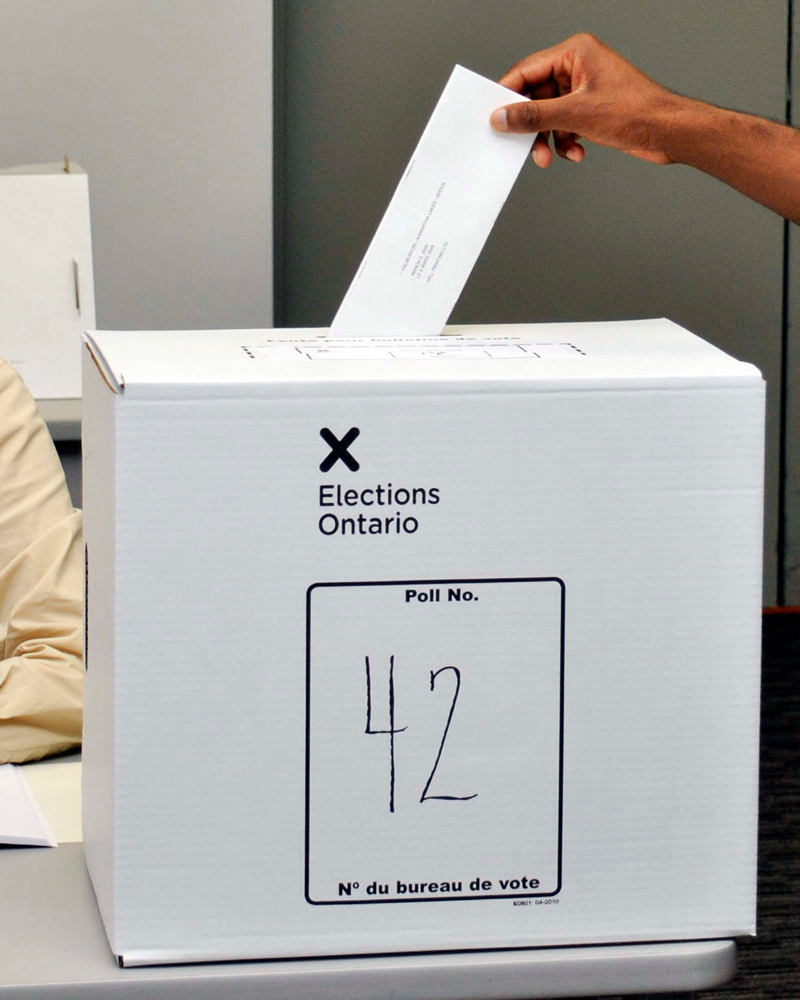Listen to the whole story here:

A snap provincial election in a province you don’t usually call home can be intimidating to a first-time voter.
Those who fit the requirements of being a Canadian citizen, 18+ years of age, and residents of Ontario (even in the short-term as they attend school) are eligible to vote in the Feb. 27 election. But what about students who reside in Ontario who do not hold Ontario IDs?
Under the Vote If You’re A Student tab on the Elections Ontario website, there is only mention of Ontario students who are studying outside of Ontario – not out-of-province students who are currently studying in Ontario. However, out-of-province students still have the right to vote as long as they show up to their polling place with a photo ID and something that provides proof of residence in Ontario, such as a school tuition/fees statement or a utility bill sent to an Ontario address (the full list of accepted IDs can be found on the Elections Ontario website).
“The best way to participate is to vote in person at your local polling station on Feb. 27 or at an advance polling station on February 20, 21 or 22,” said Elections Ontario in an email to OTR.
If you’re not sure where your local polling station is, you can enter your Ontario residence postal code into a field on the Elections Ontario website.
“We often have people say, like, ‘Oh no, I’m not from the province, so this isn’t for me.’ Or, ‘I’m not a constituent of the province, I’m a student here.’ No, you are! Students are absolutely eligible to vote,” said Amanda Munday, the Executive Director of New Majority, a non-profit organization in Ontario that – according to its website – works to get people under 30 years old to the polls.
With advanced voting falling during the reading week of many Ontario universities, record-low voter turnouts in 2022, and a snap election in one of the coldest months of the year, Munday says Doug Ford’s election call has presented unique challenges for students looking to vote. They cite lack of awareness as another large issue.
“More than 50 per cent of the people we talked to don’t know an election is happening or don’t have the logistical plans to get to the polls,” said Munday. “It’s really important that young people – all students, but especially out-of-province students understand that you’re a person who has an experience in this province, who is affected by policies, and your voice absolutely matters.”
Julia Collett moved from Vancouver, B.C. to Toronto to pursue visual studies at the University of Toronto just under three years ago. “I think it’s so important to be part of the community that you’re living in…voting is just a really good way to feel more attached to somewhere that you’re studying,” said Collett. “I’m still here for at least four years…and it will affect my life – depending [on] who is in charge.”
Collett explains that while she doesn’t plan on staying in Toronto for her whole life, voting brings a certain sense of groundedness to her existence in the city.
“We hear that young people don’t feel heard, that they don’t feel represented in politics. They don’t feel that the policies are reflective of their lived experience in the province. They don’t feel that politicians listen to them at all. And so what we often say is, if you want to resolve that issue, then voting is the way to do it.” said Munday.
